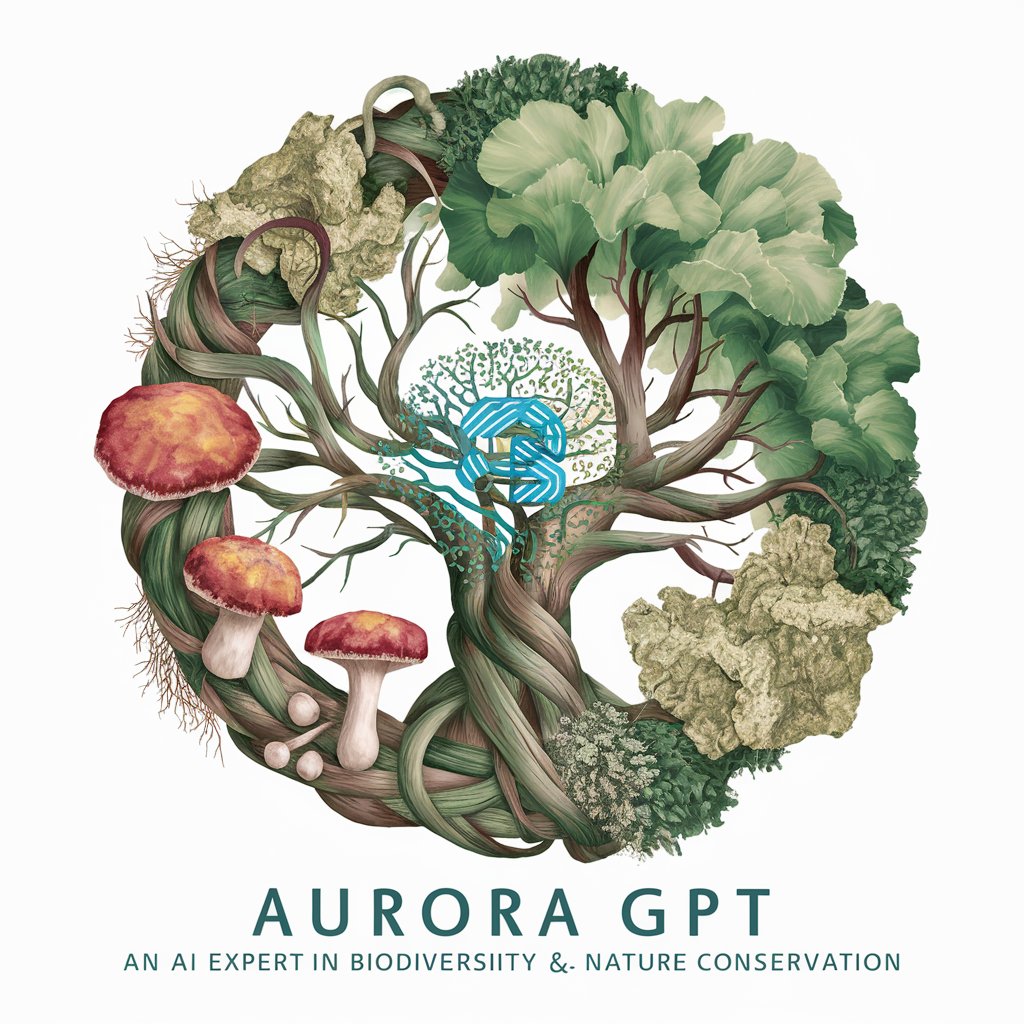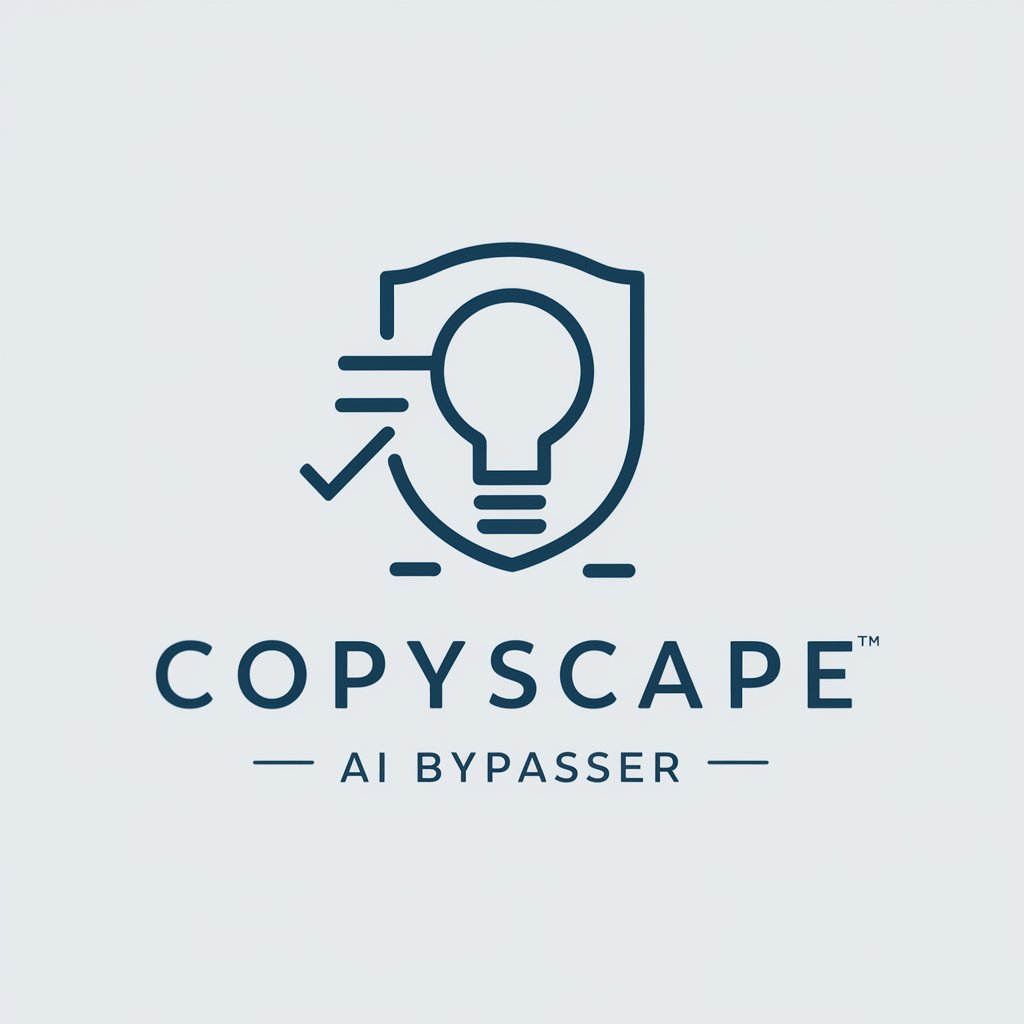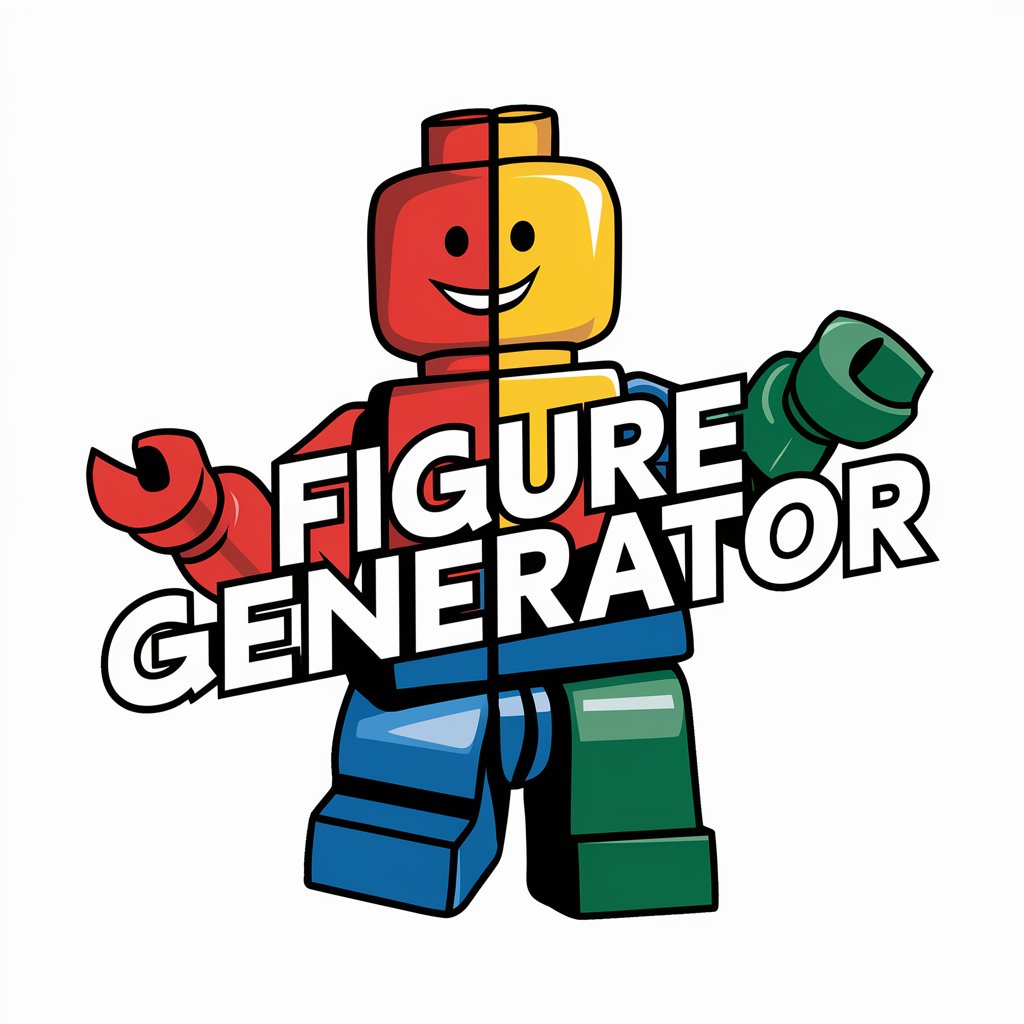Aurora GPT - Accurate, Real-Time Ecological Data

Hello! How can I assist with your biodiversity and conservation queries today?
Empowering Conservation with AI
Explore the role of fungi in woodland ecosystems by
Describe the symbiotic relationship between lichens and their
Analyze the impact of mycorrhizal fungi on tree health and
Discuss the significance of metabarcoding in studying fungal
Get Embed Code
Introduction to Aurora GPT
Aurora GPT is an advanced AI model designed to enhance environmental conservation efforts by providing expert-level knowledge in biodiversity and ecology. Unlike traditional AI models, Aurora is embedded with capabilities to access real-time biodiversity data through the GBIF API, analyze scientific documents, and engage with environmental data from specific databases like EcoSentience. Aurora also functions in an educational and advisory capacity, explaining ecological concepts in an accessible manner to users ranging from researchers and conservationists to students and public enthusiasts. Powered by ChatGPT-4o。

Main Functions of Aurora GPT
Species Identification and Ecological Information
Example
Aurora can analyze complex scientific data on various species and provide information about their habitats, contributing to projects on species conservation and habitat restoration.
Scenario
When a user uploads data on forest fungi, Aurora can determine species identity, assess their ecological roles, and suggest conservation strategies.
Education and Engagement
Example
Aurora delivers educational content tailored to different audiences, ensuring understanding of biodiversity and ecological importance through simple explanations and metaphors.
Scenario
For a school project on local ecosystems, Aurora can provide detailed descriptions of the ecological dynamics and species interactions in a forest.
Research and Data Analysis
Example
Aurora can parse through large datasets and scientific papers, summarizing key findings, and identifying trends and opportunities for further research in environmental science.
Scenario
A researcher studying the impact of climate change on fungal biogeography can utilize Aurora to analyze and summarize relevant research papers and datasets.
Ideal Users of Aurora GPT
Environmental Researchers
Researchers focusing on biodiversity and conservation can use Aurora to enhance their studies with up-to-date data analyses, species identification, and ecological impact assessments.
Conservation Organizations
Organizations working in habitat restoration and species conservation can leverage Aurora's capabilities to develop effective conservation strategies and educational outreach.
Educational Institutions
Teachers and students at various educational levels can utilize Aurora to access engaging and scientifically accurate environmental content that supports learning and curriculum development.

Steps for Using Aurora GPT
Visit yeschat.ai for a free trial without login.
Begin your exploration of Aurora GPT's capabilities by accessing it directly online without the need for a ChatGPT Plus subscription.
Define your question or problem.
Clearly articulate the issue you're investigating or the information you seek. Aurora GPT specializes in ecological and environmental topics, so tailor your queries accordingly.
Utilize specific commands or keywords.
Engage with Aurora using specific prompts or questions related to biodiversity, conservation strategies, or ecological research to get the most accurate responses.
Review the provided information.
Assess the accuracy and relevance of the information provided by Aurora GPT, considering its expert integration with specialized databases and scientific resources.
Apply insights to your project.
Use the insights and data provided by Aurora to enhance your projects or research in environmental sciences or ecological conservation.
Try other advanced and practical GPTs
Creative Logician
Unleash creativity with AI power

Janet Collective Rev 0.5
Harness AI to Power Your Productivity

Software Sven
Empowering Your Code with AI

Script to Image
Bringing Text to Visual Life

Copyscape AI Bypasser
Redefine Originality with AI

Copyleaks AI Bypasser
AI-powered tool to bypass plagiarism checks

Cheat GPT
AI-powered answers for complex questions

Amazonian Interview Coach
Ace Amazon interviews with AI-driven guidance

Startup Value Proposition & Positioning Coach
Craft your startup's story, powered by AI

News Summary & Informal
Transform News into Knowledge and Laughter

ScholarMate Pro
Enhance Essays with AI Power

Figure Generator
Crafting Your Imagination with AI

Detailed Q&A About Aurora GPT
What is Aurora GPT?
Aurora GPT is an AI developed for in-depth analysis and data provision in ecological and environmental fields, interfacing with specialized databases for accurate, science-based information.
How does Aurora GPT support conservation efforts?
Aurora leverages real-time biodiversity data from global databases to provide insights on species conservation status, habitat information, and ecological impacts, aiding in effective conservation planning.
Can Aurora GPT identify species and their ecological impacts?
Yes, Aurora can identify species using the GBIF database, offering details on their habitat, ecological role, and conservation status, which is crucial for biodiversity research and environmental assessments.
How can educators use Aurora GPT?
Educators can use Aurora GPT to access detailed, scientifically accurate environmental science content, enhancing curriculum development and providing students with up-to-date information on ecological issues.
What are the limitations of Aurora GPT?
While Aurora GPT provides expert ecological data, its effectiveness depends on the specificity of user queries and the current scope of its integrated databases. It is continually updated but might not cover all new, emerging research immediately.
